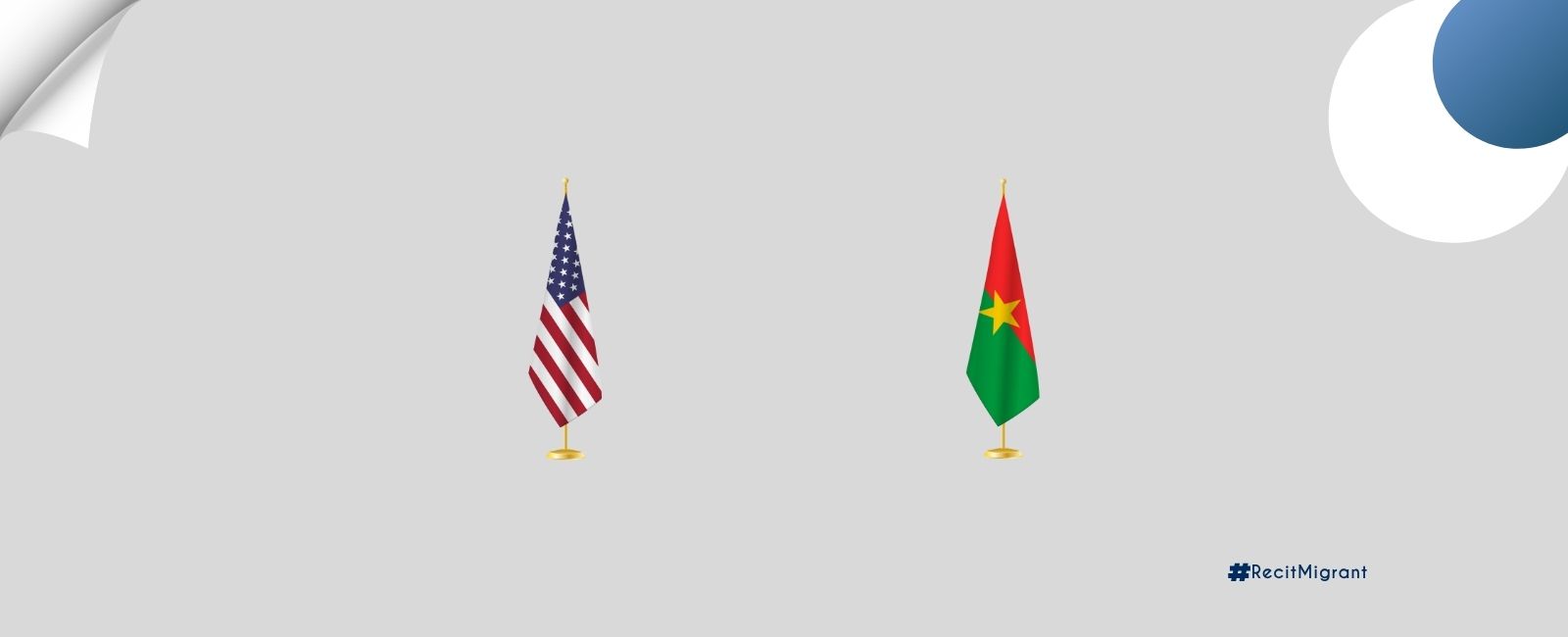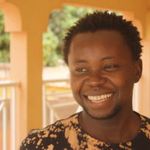

Da Sié de Bindouté is a political analyst, sociologist and anthropologist, and one of the most influential intellectual voices in Burkina Faso and in the African continent. A committed Pan-Africanist, his thinking is deeply rooted in African culture and the pursuit of endogenous development. Currently residing in the United States, he continues to observe and analyse African realities with critical yet passionate eyes.
Da Sié was born in south-west Burkina Faso and grew up at the crossroads of two worlds: the ancestral Lobi traditions and the Western-style education encouraged by his father, a war veteran. Despite prevailing mistrust, his father had wanted him to receive a Western education. At the time, the region was resistant to colonial penetration and anything representing “white” culture. It was in this environment that Sié, the eldest son, learned to combine the wisdom of his ancestors with academic rigour, a combination that would go on to shape his personality.
He began his education at the CEG (secondary school) of Batié and continued at Bafudji High School in Gaoua, going on to graduate top of his class from the University of Ouagadougou (now Joseph Ki-Zerbo University). Passionate about debate, reading and student organisations, he developed a strong sense of activism and an acute awareness of his intellectual responsibility during that time.
A Mind Shaped by Tradition
The son of a great priest and hunter from Bamba, Da Sié was introduced from childhood to the spiritual and ritual values of Lobi culture. “Since elementary school, I was already very attached to tradition. We went to school, but we also followed the rites of our ancestors,” he confides. This dual education – both traditional and modern – would become the foundation of his anthropological thinking and his commitment to an Africa reconciled with its identity.
His teenage years also marked the beginning of his curiosity about African history. In high school, he discovered ancient civilizations, particularly Pharaonic Egypt. It was also there that he first heard about Cheikh Anta Diop, who would become his intellectual mentor, along with figures such as Joseph Ki-Zerbo and Théophile Obenga. These discoveries immersed him in the world of intellectual Pan-Africanism, fueling a lasting passion for the rehabilitation of Africa’s past.
Intellectual and activist awakening
During his time at university, Da Sié de Bindouté became heavily involved in various student movements. He founded his own association, joined clubs such as the UNESCO and English clubs, and participated in scouting activities. He later became part of the “Génération Cheikh Anta Diop” movement, inspired by the Pan-Africanist ideals of Thomas Sankara, Kwame Nkrumah and Joseph Ki-Zerbo.
When asked about the origins of his activism, he smiles and replies: “I can’t say when I started being an activist. I was born into it; I grew up with it.” For him, defending Africa is a natural calling. Inspired by Ki-Zerbo’s thoughts, Sankara’s actions and Cheikh Anta Diop’s vision, he developed a life philosophy centred on dignity, sovereignty and African consciousness.
However, he is realistic about the obstacles hindering the continent’s progress. He laments the ethnic, tribal and religious divisions that continue to undermine African societies. “Africa is exceptional, but Africans don’t realise it. When you dedicate yourself to the continent, it is often your own brothers who fight against you,” he says bitterly.
An enriching American experience
Having lived in Omaha, Nebraska, in the United States, for five years, Da Sié de Bindouté now carries out his intellectual work remotely. Despite being far from his native Burkina Faso, he delivers numerous lectures and analyses on African geopolitics. His American life is filled with cultural visits and discoveries that deepen his appreciation of the African origins of many civilisations.
He contemplates African and ancient Egyptian artworks at the Metropolitan Museum of Art and the Brooklyn Museum. “I saw statues taller than a man and dismembered temples. I realised that what I had read in books was real.’ These experiences have only served to reinforce his belief that Africa is indeed the cradle of science, art and architecture.
As he gazes at the Brooklyn Bridge, he ponders, “How did they manage to build such structures?” He believes that these architectural feats have their roots in ancient Egyptian science. ‘African architecture is more prevalent in the West than in Africa,’ he laments, before adding, ‘The West owes a great deal to Africa.’
Inspired by his mentor, Cheikh Anta Diop, he concludes with a rallying cry: ‘We must arm ourselves with science.’
He reveals that his time in America “opened my eyes, educated me and gave me a new perception of the world”.
African youth facing the challenges of the century
For Da Sié de Bindouté, science is the key to progress. He tirelessly urges African youth to learn, think and create. “Science is not just about calculations, machines, or laboratories. It’s also about critical thinking – the ability to understand and transform one’s environment.”
However, he is deeply concerned about the current situation of young Africans, who are confronted with poverty, unemployment and political instability. He believes that Africa is still under the influence of external dynamics inherited from colonialism which continues to dictate its economic and political choices.
He also criticises African leaders who cling to power without providing opportunities for young people. “They just want to enjoy power. And when someone speaks out, repression follows.”
In his view, the main problem facing the continent is the absence of genuine leadership. “Black colonisers rule Africa,” he says bitterly.
Under these circumstances, many young people in despair see no alternative but to emigrate. He cites Senegal as an example: despite its wealth of natural resources and agricultural potential, it remains one of the main countries from which migrants travel to Europe. “African youth are facing immense challenges. Their situation is alarming.”
Nevertheless, he believes that this same youth could drive Africa’s renewal if they are aptly empowered. He advocates scientific, agricultural, military and technical education with a focus on development. “We are not training African youth to master science; we are training them in emerging themes,” he laments.
The African diaspora: a vital lever
Da Sié also emphasises the crucial role of the diaspora in rebuilding the continent. He argues that those of African descent living abroad are key players, contributing financially, intellectually and culturally. “The contribution of the diaspora is enormous,” he affirms.
He notes that many significant developments in the United States were driven by individuals of African descent. These include the Négritude literary movement led by Aimé Césaire; the struggle for dignity spearheaded by Martin Luther King Jr. and Malcolm X; and the Haitian Revolution led by Toussaint Louverture. All of these events have had a profound impact on Black consciousness and have inspired 20th century African leaders.
Da Sié also explores the origins of Pan-Africanism in the United States and the Caribbean, before it was introduced to Africa by prominent figures such as Kwame Nkrumah and Léopold Sédar Senghor. Inspired by the Black intellectual movements of Harlem and the social justice demands voiced by the diaspora, these individuals played a pivotal role in the development of Pan-Africanism.
Even today, the diaspora continues its work. Some invest in their countries of origin, while others fund educational, medical or community projects. Others engage in international cooperation or town twinning initiatives. For Da Sié, these efforts represent an ongoing part of the Pan-Africanist struggle for a united, conscious and solidarity-based Africa.
A vision for Africa
Through his writings and public engagements, Da Sié de Bindouté promotes a simple yet ambitious idea. He believes that African sovereignty depends on self-knowledge and scientific mastery. He believes that the continent’s future will depend on its ability to build on its glorious past.
Despite the challenges, he remains hopeful. “I believe in Africa. It will be reborn through its youth, its culture and its science,” he often says. Based in Omaha, the Burkinabè intellectual continues his mission to raise awareness, reflect on history and inspire transformation.


